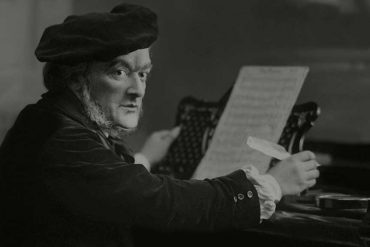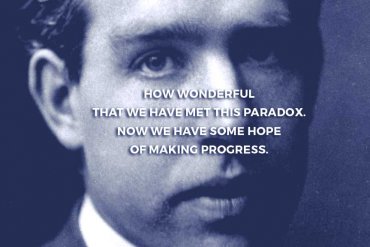Francis Bacon was a great genius who helped to shape the modern world. But many people would be hard put to say exactly why. He made no new discoveries, developed no technical innovations, uncovered no previously hidden laws of nature. His achievement was to offer an eloquent account of a philosophy and a method for doing those things. And in that way he turned out to be as important as people famed for particular discoveries,...
Philosophy
Everything on philosophy related to Maier files series. Posts and Thoughts examining existence, change, properties, space, time, causality, and possibility.
The secret teachings of Goethe. That Johann Wolfgang von Goethe (1749-1832), Germany’s greatest poet, had an interest in the occult and alchemy is clear from Faust. Based on an historical character, the original Faust legend goes back to medieval times and prior to Goethe‘s there were earlier dramatic renditions of the tale, notably Christopher Marlowe’s. Yet it is to Goethe’s Faust (Part I 1808; Part II 1833) that most of us turn when we think...
When reading Otto Maier’s journals and stumbling on his musical (harmony) ideas, the illusionary world and the references to the division “Parzival” one will meet without doubt Wagner and Schopenhauer. Philosophical ideas profoundly inspired Wagner. Not in a dilettante fashion, but out of genuine interest, passionate need, and deep study. In early adulthood he was a real revolutionary socialist and a comrade of Mikhail Bakunin, in whose company he manned the barricades in the Dresden uprising of...
Understanding entails being able to detect an internal contradiction: a paradox. Are paradoxes “all in our heads” or are they built into the universal structure of logic? At first sight the idea of knowing what the universe is like, is absurd. American-Canadian neurosurgeon Penfield expanded brain surgery’s methods and techniques, including mapping the functions of various regions of the brain. Penfield’s experiments demonstrated that memories occupy engrams, specific physical sites in the brain. To know about...
The attentive reader of the first episodes of Maier files will have noticed that the tale once told by Rolf Dietrich and the history of Otto Maier are filled with powerful themes and images that might provide a clue to the real hidden mystery, among them: the Rose Trail (Troj de Reses), web of woven silk, the knights in the line of Dietrich von Bern, the enchanted windmill, fiancée of the Month of May, the...
The problem of consciousness, alternatively put, is the problem of finding out how mental phenomena, such as thoughts and feelings, are related to physical occurrences in brains. This way of stating the problem assumes that some such relation exists, an assumption not always made in the history of philosophy. Since Descartes the debate has become more sophisticated, and in our own time the use of scanning devices to monitor living brain activity has enormously advanced...
The world has never had a good definition of the word liberty, and the American people, just now, are much in want of one. We all declare for liberty; but in using the same word, we do not mean the same thing. . . . Here are two, not only different, but incompatible things, called by the same name, liberty. — Abraham Lincoln The quotation above is taken from Abraham Lincoln, The Writings of Abraham...
Accelerationism, an intriguing concept rooted in the philosophy of Friedrich Nietzsche and embraced by some Marxist theorists, is a radical idea proposing that the best way to bring about significant change is by pushing a system to its extreme limits, hoping to induce its collapse. In this article, we’ll delve into the essence of accelerationism, simplifying its complex theories with relatable examples. The Reductio ad Absurdum Principle Accelerationism draws inspiration from the reductio ad absurdum...













